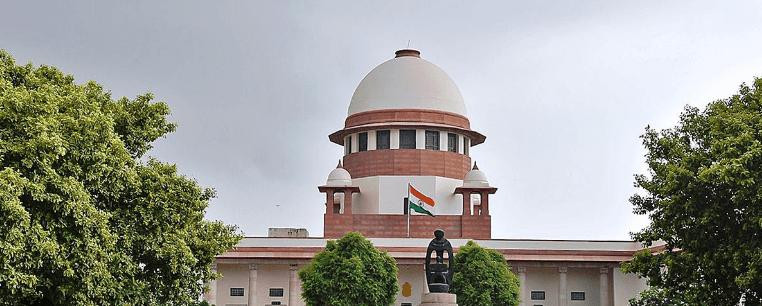
In a recent development, the Supreme Court has issued an order to stay the operative part of the Madras High Court’s ruling, which had previously set aside a notification issued by the Tamil Nadu State Commissioner of Food Safety imposing a ban on the sale of various tobacco and nicotine-containing products. The products in question include Gutka, Pan Masala, flavoured or scented food products, and other chewable food items.
The stay order was granted by a Bench consisting of Justice KM Joseph and Justice BV Nagarathna, who also provided clarification that manufacturers who may not fall under the purview of the notification may approach the appropriate forum seeking redressal. This decision by the Supreme Court is likely to have a significant impact on the sale and distribution of tobacco and nicotine-containing products in Tamil Nadu and beyond.
If respondents feel that their actions are not covered by the notification, we want to clarify that they have the option to seek redress at the appropriate forum.
In 2013, the State government imposed a ban on tobacco and guthka products through a temporary provision under the Food Safety and Standards Act, 2006, which was extended annually through various notifications.
However, in January, the Madras High Court set aside the notification, citing that the Commissioner exceeded his powers. The Court ruled that the notification could only be issued as a temporary measure, and allowing the concerned authority to impose a permanent ban through successive notifications would confer powers that are not envisioned under the FSSA or the COTPA.
Contrary to the Delhi High Court’s decision that the provisions of COTPA take precedence over those of FSSA, the Madras High Court disagreed and stated that ‘tobacco’ falls under the definition of Section 3(j) of FSSA as a food product.
Representing the State of Tamil Nadu, Senior Advocate Kapil Sibal argued that Section 30 of the FSSA grants the State Government (Commissioner of Food Safety) the authority to prohibit the manufacture, storage, distribution, or sale of any food item throughout the State in the interest of public health. Sibal stated that the ban imposed by the State Governments is based on the Court’s order in Ankur Gutkha v. Indian Asthma Care Society And Ors. He highlighted that the Bench should only consider whether the power to issue such notifications can be used annually. The Bench was reminded that one of the grounds for challenging the notification was that the FSSA does not allow for successive bans through routine notifications, each effective for a year.
Sibal pointed out that in Ankur Guthka, the Supreme Court had taken note of the practice adopted by manufacturers to evade the ban on guthka sales by selling separate sachets of pan masala (without tobacco) and flavoured chewing tobacco, which allowed consumers to purchase both and mix them for consumption. He argued that the respondents in the current case are making the same argument.
Judge Nagaratna asked, “Is tobacco itself not food?”
Sibal replied, “You must mix it with something. It will make it food.”
During the discussion, he emphasized that respondents argued that the central government had the power to ban under COTPA. I thought I might be powerless.
Senior attorney AM Singhvi, representing one of the interviewees, argued that the law did not allow the government of Tamil Nadu to do what it did. He argued that there was no allegation or statement of fact that the defendants mixed products and sold them together. claimed no. “Lack of regulation cannot be a reason for ban,” argued Dr. Shinvi.
He certainly claimed that tobacco/chewing tobacco is not food.
Never chew tobacco. Spit out. Tobacco is not food. “
Referring to the notice, he argued that the chewable products prohibited therein should be food. He argued that state governments do not have the authority to ban a ban under the FSSA in that case.
Finally, Judge Joseph asked Sibal to clarify whether tobacco products could be considered food products. Sibal asserted: “The Supreme Court said so.
He further said
“If a person makes cigarettes, the question is why are they doing it. No one produces tobacco independently… It is not suitable for human consumption. They make it to deliver.
Judge Joseph disagreed that tobacco cannot be consumed independently: “Don’t say nobody uses tobacco. I’ve lived a good part of my life with someone who uses it every day. They spit it out, that’s another story.
Mr. Sibal asked the Chamber to require respondents to submit an affidavit stating the end use of the tobacco they manufacture.
“They should reveal the final use of the tobacco they make.”
Written by Vaishnavi goel ( Ba.LLB), 6th semester, Punjab school of law, Punjabi university , Patiala





0 Comments